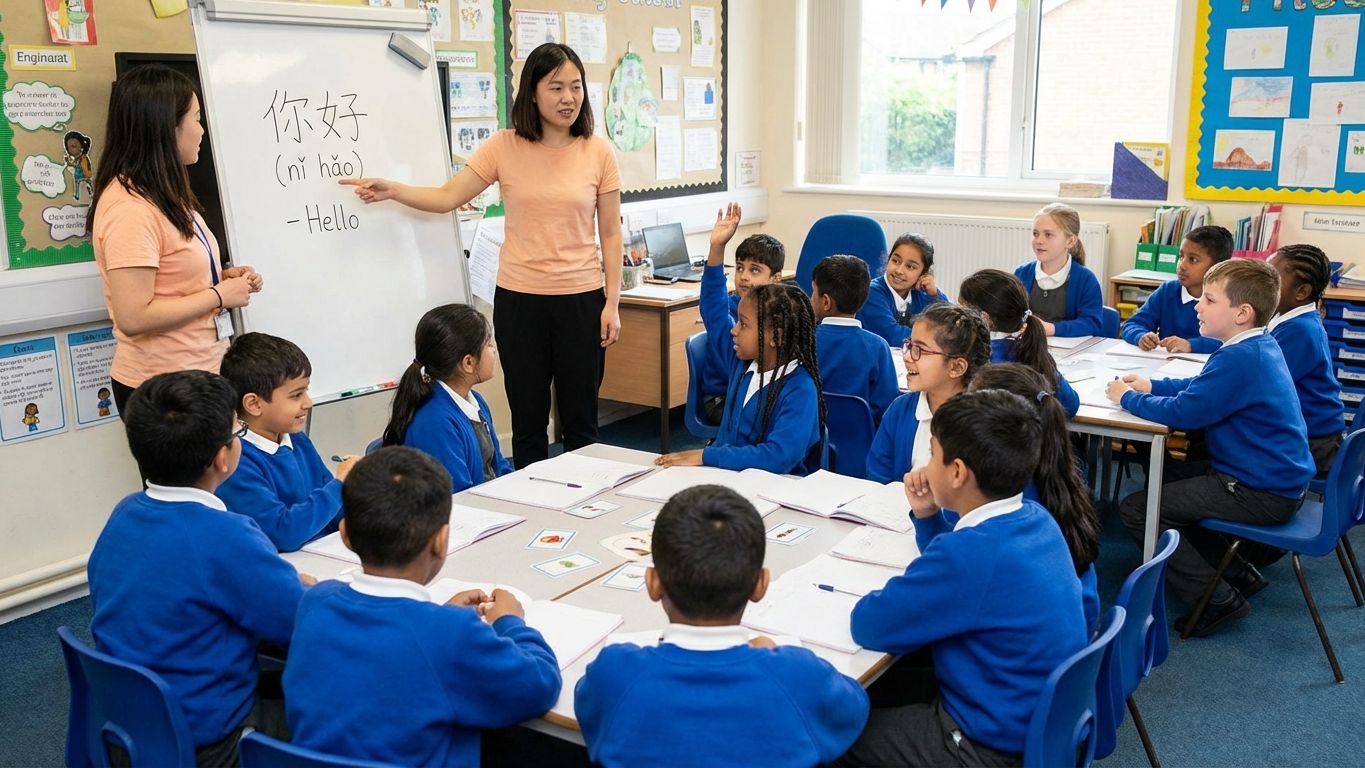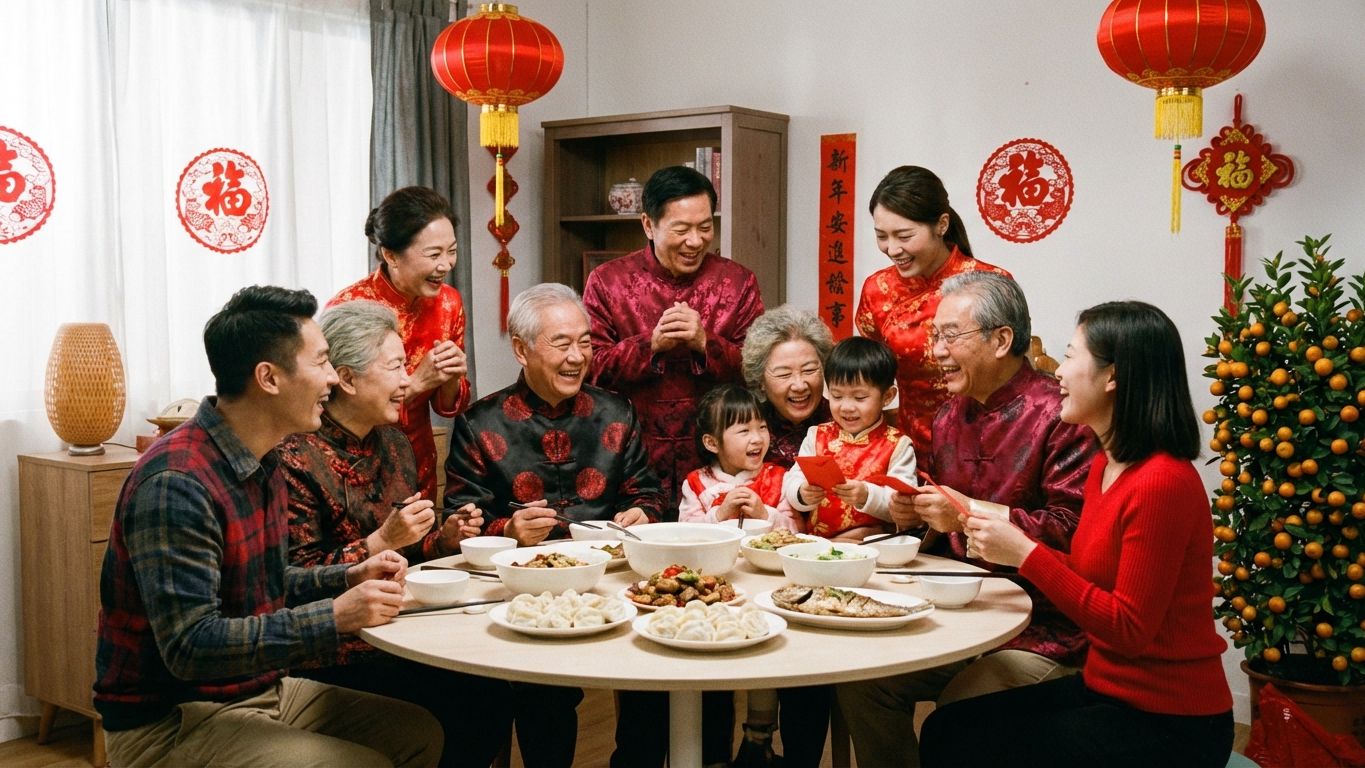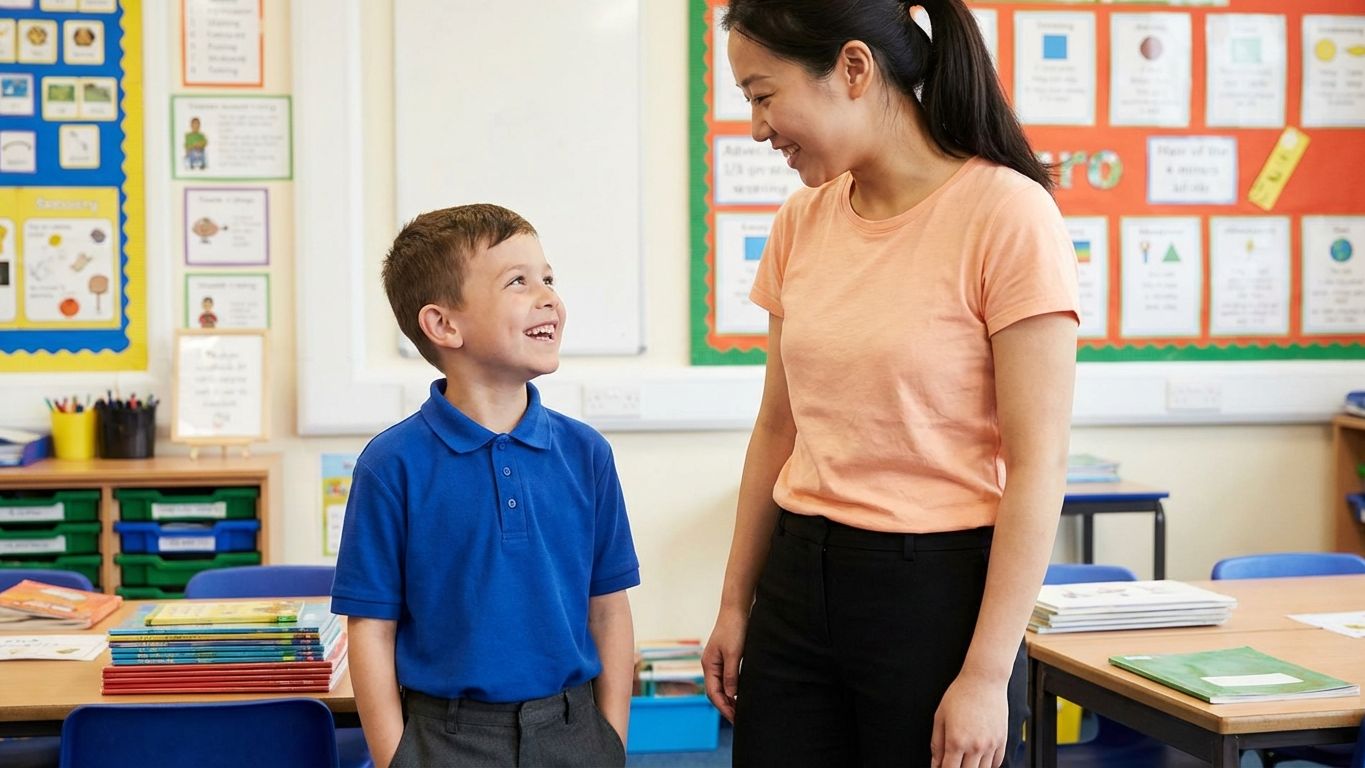We have classes for
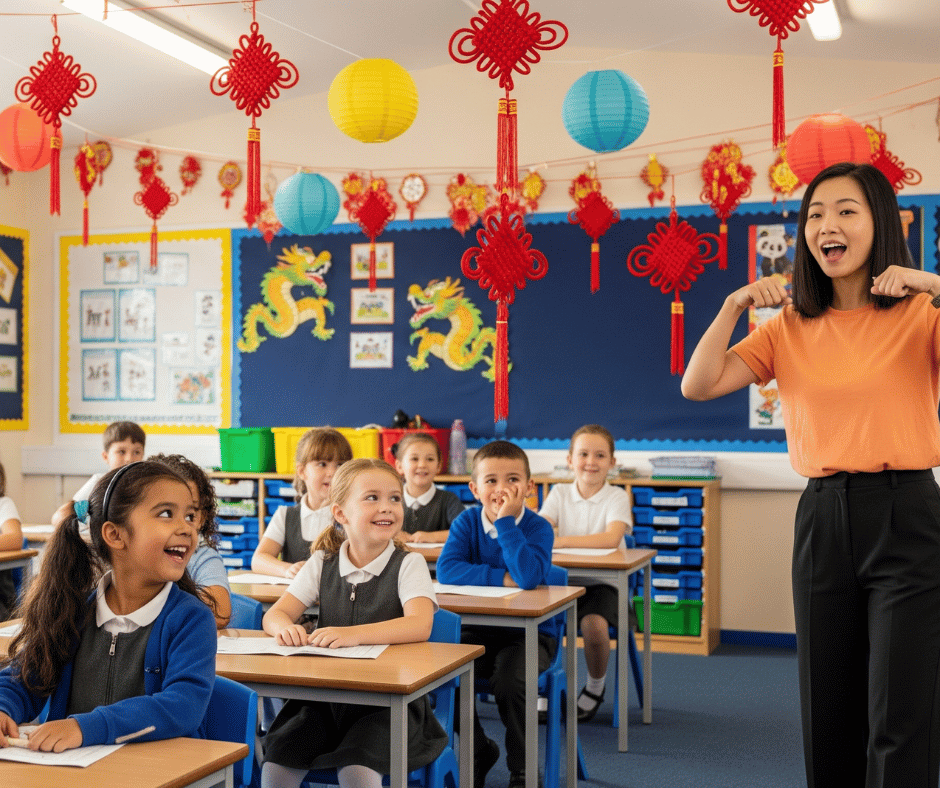
KS1 (5-7 yrs)
Learning Mandarin in a UK primary school is a fun adventure, starting with the youngest students in Key Stage 1 (ages 5-7). For these little ones, the focus is all about play! They learn new words and phrases through story-led adventures, where a teacher might tell a tale about a dragon and a pearl, acting out the parts together. Movement and action songs are a big part of the fun, helping them remember body parts or animals through songs like a Chinese version of "Head, Shoulders, Knees, and Toes." Simple worksheets with colouring and matching games help reinforce what they've learned in a colourful, engaging way.

KS2 (8-12 yrs)
As they move into Key Stage 2 (ages 7-11), the learning becomes a bit more structured, but still super creative. They begin to read and write with Pinyin, which helps them sound out words, and they start to learn simple Chinese characters. Songs and games continue to be a fantastic way to practice, but they might be more complex, like role-playing a shopping trip to practice asking for different items. This is also when they start to learn about Chinese culture, exploring everything from the traditions of the Spring Festival to the stories of the Zodiac animals, making the language feel even more real and exciting.
Flexible Solutions
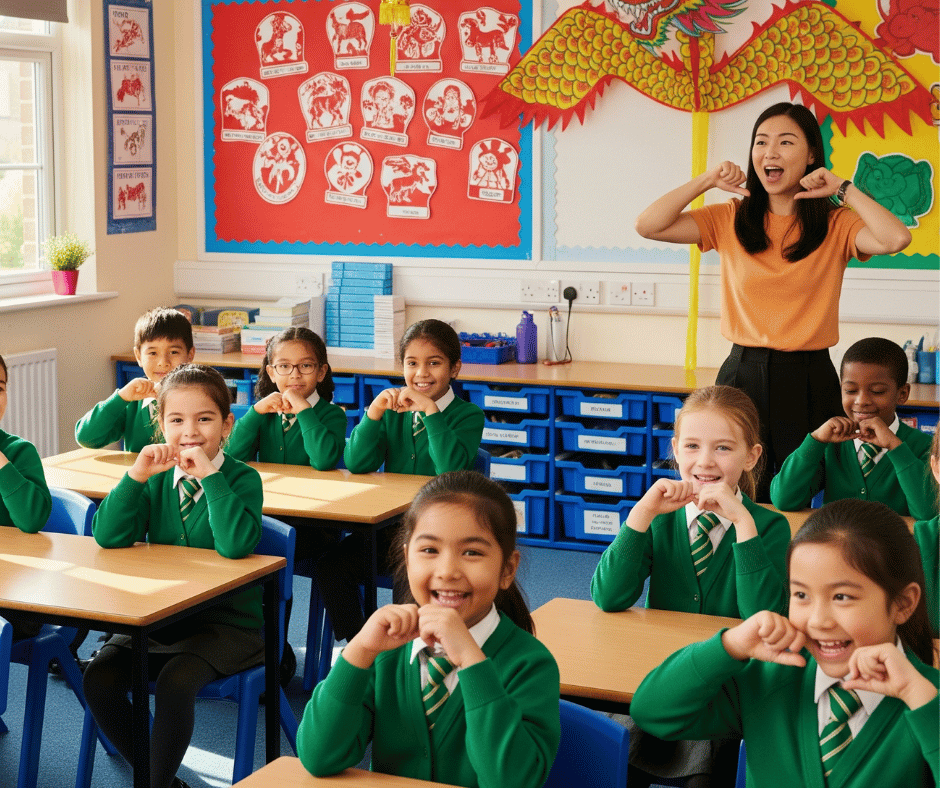
PPA Cover
PPA Cover can be delivered effectively by specialist Mandarin teachers, freeing up class teachers for planning, preparation, and assessment.

MFL Curriculum
Mandarin can be easily integrated into the MFL curriculum to meet national requirements while offering a unique and culturally rich language option.
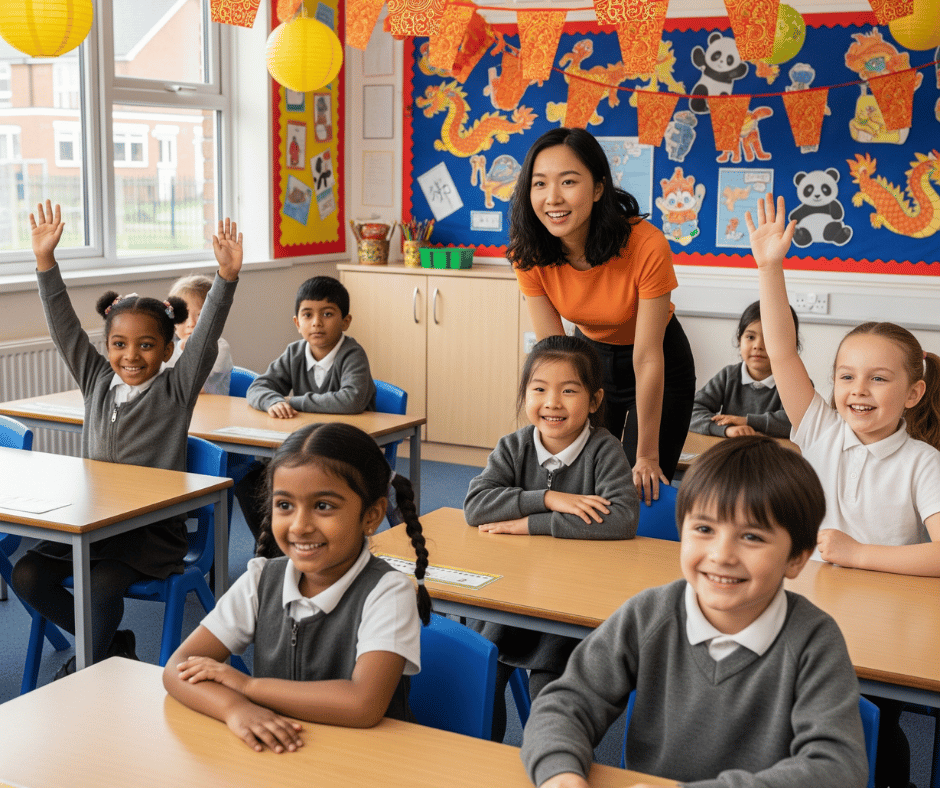
Enrichment Clubs
Offering Mandarin as an after-school or lunch-time enrichment club provides pupils with a fun and engaging way to explore a new language and culture.
Why Mandarin for Primary School Children?
Future-Proofing Our Kids
Cultural Super-Spies
Brain Gym Workouts
Inclusivity Wins
Happy Staff, Happy School
Easy-Peasy Integration
Parental Wow Factor
Character Building, Simplified
Global Citizens in the Making
Why Schools choose us
Ofsted-aligned, EYFS/KS framework ready
Reliable, qualified teachers
Track record with UK schools
Fun and Educational Curriculum for Primary Schools
Vocabulary is introduced through themes relevant to primary school children, such as:
- Greetings and Introductions: 你好 (Nǐ hǎo - Hello), 我叫… (Wǒ jiào… - My name is…)
- Numbers and Colours: Counting in Mandarin and naming colors.
- School Life Vocabulary: Classroom objects, days of the week, and simple commands.
- Daily Conversations: Asking questions, answering simply, and polite phrases.
- Conversational Practice:
- Each lesson introduces new vocabulary with two simple conversational sentences using 2-3 new words.
- Encourages children to use Mandarin in practical scenarios (e.g., greetings, asking names, describing colors).
- Repetition and Reinforcement:
- Key vocabulary is repeated throughout the lesson to reinforce memory.
- Words from previous lessons are revisited for cumulative learning.
Learn more about the curriculum


